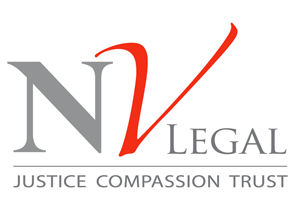Patient attacks healthcare worker – £65,000 compensation
For those working in healthcare professions such as healthcare workers, where compassion and care are paramount, your safety is important.
However, in some cases incidents do happen, jeopardising the safety of those at work. We recently settled a claim for a healthcare worker who encountered a challenging and dangerous situation when a patient attacked him.
This real-life story serves as a powerful reminder of the critical importance of safety at work, especially in the healthcare industry. Outlining measures that can be taken to protect those who dedicate their lives to caring for others.
HEALTHCARE WORKER CASE
Our client, a dedicated health care support worker, faced a life-altering incident while caring for teenage in-patients in a care home, specifically within a medium secure unit for children and adolescents who required mental health services. During his duties, he endured an unprovoked punch to the face by a female patient, a traumatic event that triggered a series of mental and physical issues.
The staff at the unit involved the police and referred the patient to the Youth Offending Team. Unfortunately, the consequences for our client were severe. His fractured nose required surgery for repair, leaving him with lasting effects, including anosmia, a traumatic brain injury, and Post Traumatic Stress Disorder (PTSD).
About three weeks later, he underwent surgery under general anaesthesia to manipulate his fractured nose. Despite this initial procedure, he continued to experience nasal obstruction and deformity, affecting his daily life, including the simple act of wearing glasses. Subsequently, he underwent a septo-rhinoplasty to address the ongoing nasal deformity, followed by a week of wearing a plaster of Paris splint over his nose.
INJURIES
Beyond the physical challenges, our client’s sense of smell has diminished, leaving him with a constant unpleasant odour reminiscent of burning. He has no sense of taste, rendering food tasteless. Additionally, he grapples with a persistent numbness on the top of his lip and an incessant nagging sensation in his nose.
Emotionally, the incident took a toll, leading to low mood, sleep disturbances, early morning waking, heightened anxiety, and intrusive thoughts. His work environment became a source of hypervigilance and tension, impacting his concentration and causing irritability. He struggled with headaches, dizziness, and nausea, all while becoming self-conscious about his appearance.
The consultant psychiatrist instructed for the case recommended 15 to 20 sessions of Cognitive Behavioural Therapy (CBT) to address the PTSD.
Despite initial assessments by other law firms who turned down his case, we secured an award of £65,000, offering our client some solace and recognition for the profound consequences he has faced.
ATTACKED AT WORK
Here are some steps to consider taking if you are a healthcare worker:
Ensure your safety: If possible, move to a safe distance from the patient to minimise the risk of further harm. Use any available barriers or objects to create distance between you and the patient and call for help immediately if you feel threatened or unsafe.
Alert colleagues: If you have a panic button or alarm system, activate it to alert your colleagues and security. If not, try to communicate verbally or use a communication device to inform your colleagues of the situation and request assistance.
Follow workplace policies and procedures: Familiarise yourself with your workplace’s policies and procedures for handling violent or aggressive patients. Many healthcare facilities have specific protocols for managing violent incidents.
Do not engage in physical confrontation: Avoid physical confrontation with the patient whenever possible. Your safety should be the priority. If you must physically defend yourself, use the least amount of force necessary to protect yourself.
Document the Incident: After the incident is resolved and you are safe, document the details of the attack, including the date, time, location, and a description of what happened. Include any injuries sustained, as well as the names of witnesses.
Medical attention: Seek immediate medical attention for any injuries. Ensure that all of your injuries are documented correctly. A medical report may be needed for legal or insurance purposes.
Report the incident: Report the incident to your supervisor, manager, or employer as soon as possible. Your workplace may have specific reporting procedures for such incidents.
Involve the police: In cases of severe violence or if you believe a crime has been committed, consider involving the police. Provide them with your statement and cooperate with their investigation. You may have a claim for compensation under the Criminal Injuries Compensation Scheme.
Seek support: It’s important to seek emotional support after experiencing a traumatic event like this. Talk to your colleagues, supervisor, or a mental health professional. Many workplaces offer counselling services to provide support to employees.
Legal advice: Speak to a solicitor, such as NV Legal for legal advice as you may be able to claim compensation.
Review and prevent: After the incident, your workplace should conduct a review to identify any potential security improvements or protocol changes that could help prevent similar incidents in the future.
Remember that the specific procedures and guidelines may vary depending on your workplace and the nature of your job. Always prioritise your safety and follow your workplace’s policies and procedures when dealing with violent or aggressive patients.
If you’ve experienced an incident while at work, where an individual has inflicted physical or emotional harm upon you, you may be eligible for compensation.
NV LEGAL
If you would like further information on any of the issues covered contact us for a FREE no-obligation consultation. All queries will be answered by a solicitor.
Call – 03330 112 732
Email – info@nvlegal.co.uk
Website – nvlegal.co.uk
Find us on social media – Facebook LinkedIn
USEFUL LINKS:
10 things you must do after an accident at work
Involved in an accident at work? We explain your rights and how to claim for personal injury
Rebuilding your life after an accident


